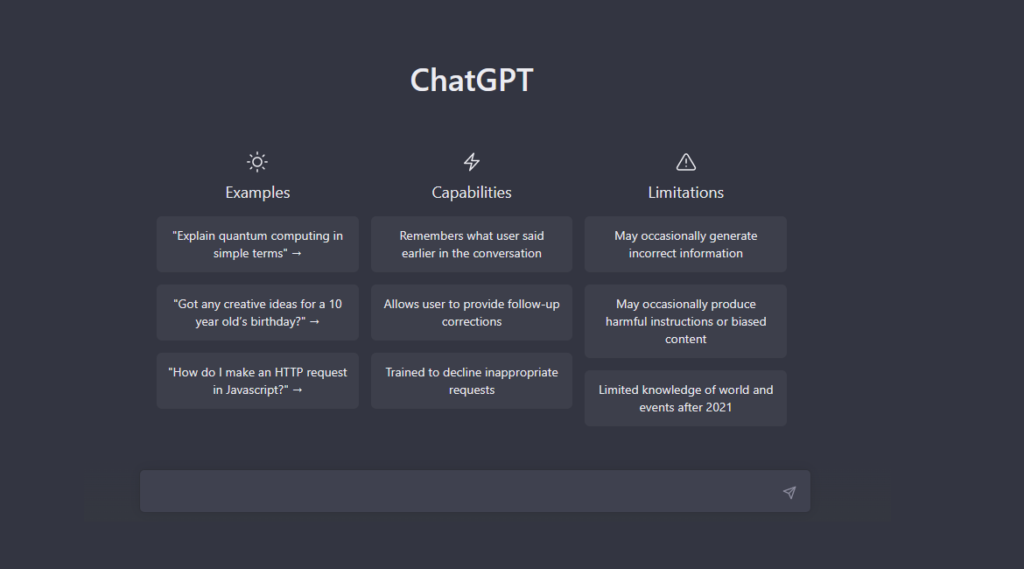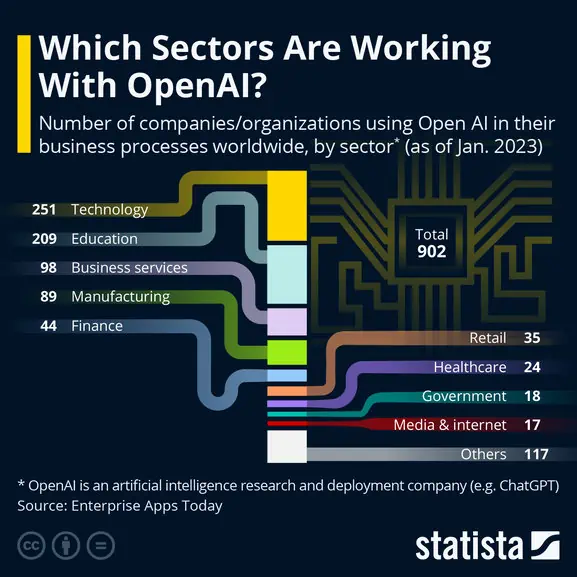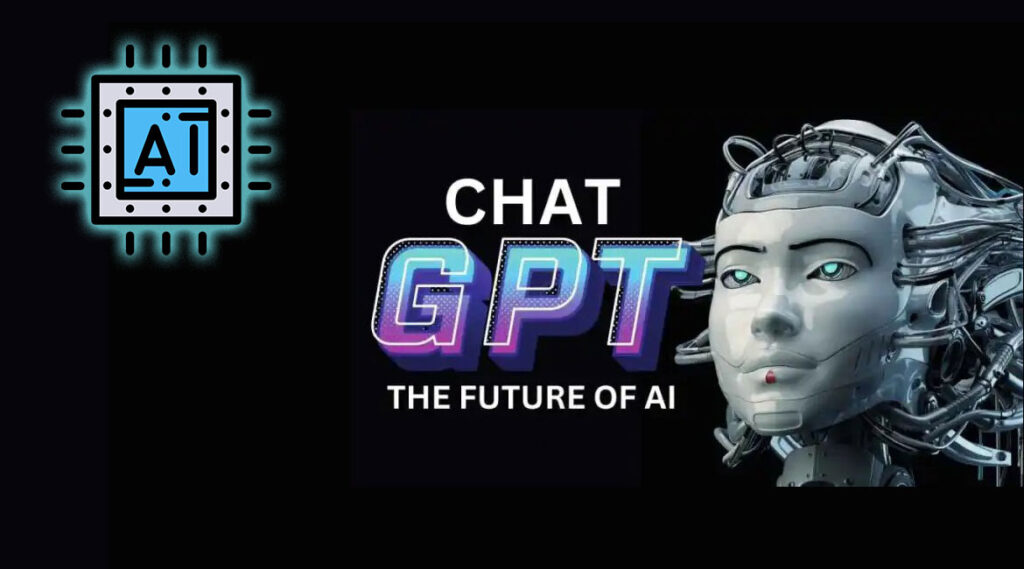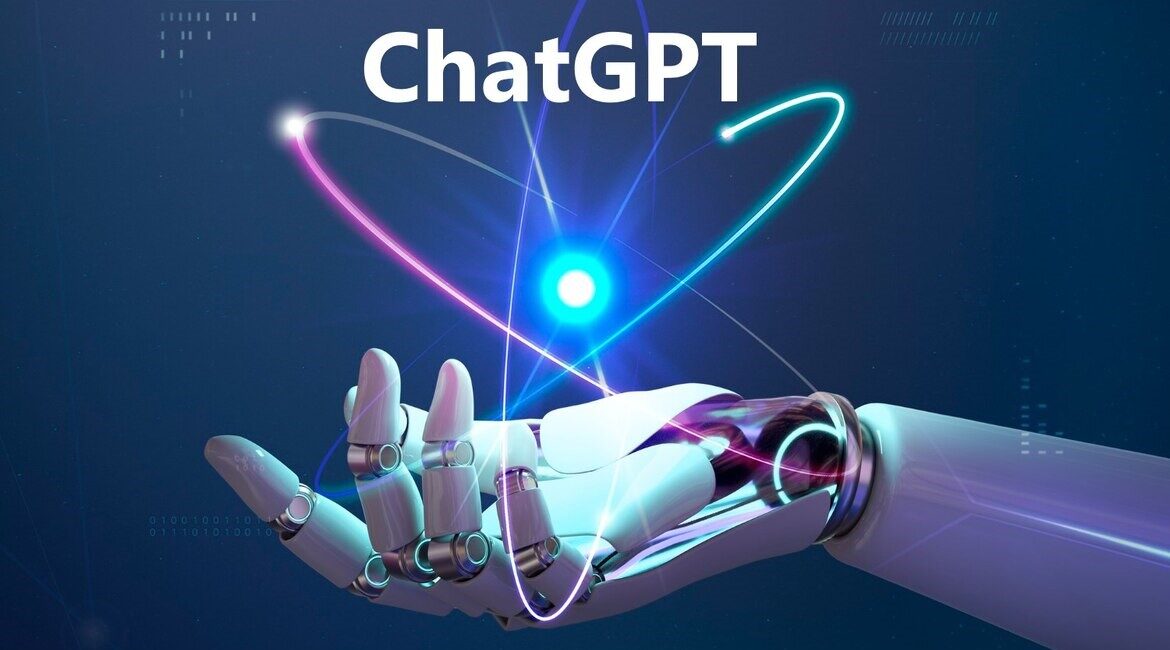The Ultimate guide to ChatGPT – Your Personal Al Assistant
ChatGPT is a large language model developed by OpenAI, designed to simulate human-like conversations with users.
It is based on cutting-edge artificial intelligence technology and has been trained on an enormous corpus of text from various sources such as books, articles, and online forums.
ChatGPT is capable of understanding natural language input and generating coherent and relevant responses to a wide range of questions and topics. It can provide information, offer suggestions, engage in small talk, and even tell jokes.
The model has become increasingly popular and is used in a variety of applications, including chatbots, virtual assistants, and customer service systems.
With its advanced language processing capabilities, ChatGPT has opened up new possibilities for human-computer interaction, making it easier and more intuitive for people to interact with machines.
What is ChatGPT?
It is a natural language processing (NLP) tool developed by Open AI, a leading research lab in the field of artificial intelligence.
ChatGPT stands for “Generative Pre-trained Transformer,” which refers to the type of deep learning architecture used to build the tool.
It is a language model that is trained on massive amounts of data, which enables it to understand and generate human-like responses to natural language input.
The model has been trained on a diverse range of text data, including news articles, books, and online conversations, allowing it to learn a wide range of language patterns and concepts.

Is ChatGPT going to replace Google?
No, ChatGPT is not designed to replace Google or any other search engine or AI technology. While ChatGPT is a powerful tool for natural language processing, it has different capabilities and use cases than search engines like Google.
Google is primarily a search engine that provides users with information in response to specific queries, while ChatGPT is designed to generate human-like responses to natural language input in conversational contexts.
While there may be some overlap in terms of the types of queries that can be addressed by each tool, they are fundamentally different types of technology with different strengths and use cases.
What are the advantages of ChatGPT?
ChatGPT has several advantages over other natural language processing tools. Here are a few:
- Natural language generation: ChatGPT is capable of generating human-like responses to natural language input, which can be useful in a variety of conversational contexts, such as chatbots, virtual assistants, and customer service applications.
- Large-scale training: ChatGPT has been trained on massive amounts of data, which allows it to understand a wide range of language patterns and concepts. This means that it can be used to address a wide range of natural language processing tasks, such as language translation, summarization, and sentiment analysis.
- Customizability: ChatGPT can be fine-tuned and customized to specific use cases, allowing developers to create more tailored conversational AI applications.
- Continual improvement: ChatGPT is a constantly evolving tool, with new versions and improvements being released regularly. This means that it will continue to get better over time, making it an increasingly powerful tool for natural language processing.
Overall, ChatGPT is a powerful tool for natural language processing that has a wide range of potential use cases.
While it is not designed to replace Google or other search engines, it can complement these technologies in a variety of contexts and enable the development of more advanced conversational AI applications.
Chat GPT Chrome Extension:
There are several Chrome extensions available that use ChatGPT technology to enable conversational AI capabilities in web browsers.
These extensions allow users to have human-like conversations with a virtual assistant that can help with a variety of tasks, such as finding information online, scheduling appointments, and sending messages.
The most popular examples of these extensions are “Talk to Transformer” and “AI Writer.”
Which sectors are working with OpenAI?

Open AI is collaborating with a wide range of industries and sectors, including healthcare, finance, energy, education, and more. Some of the notable partnerships and collaborations include:
- Healthcare: Open AI is working with healthcare providers to develop AI tools that can help with medical research, drug discovery, and patient care. For example, they have partnered with the New York University School of Medicine to develop AI models that can predict the likelihood of patients developing certain medical conditions.
- Finance: Open AI is collaborating with financial institutions to develop AI models that can improve fraud detection, risk assessment, and financial forecasting. For example, they have partnered with JPMorgan Chase to develop a machine learning platform that can analyze financial data and generate investment insights.
- Energy: Open AI is working with energy companies to develop AI models that can improve energy efficiency, reduce emissions, and optimize energy production. For example, they have partnered with Microsoft to develop an AI model that can predict the energy output of wind turbines.
Future uses of ChatGPT?

The potential uses of ChatGPT are vast, as it has the capability to generate human-like responses to natural language input in a variety of contexts. Some of the future uses of ChatGPT could include:
- Virtual assistants: ChatGPT could be used to power virtual assistants that can help with a wide range of tasks, from scheduling appointments to making restaurant reservations.
- Customer service: ChatGPT could be used to improve customer service experiences by providing more personalized and efficient responses to customer inquiries.
- Content creation: ChatGPT could be used to generate content, such as news articles or product descriptions, based on specific criteria or prompts.
- Education: ChatGPT could be used to develop educational resources, such as chatbots that can answer students’ questions or provide personalized feedback on assignments.
Content writers can take advantage of ChatGPT in several ways, including:
- Idea generation: ChatGPT can be used to generate ideas for blog posts, articles, or other types of content based on specific keywords or prompts.
- Content creation: ChatGPT can be used to generate content based on specific criteria or prompts, such as product descriptions or social media posts.
- Editing and proofreading: ChatGPT can be used to identify and correct errors in written content, such as grammar or spelling mistakes.
- Research: ChatGPT can be used to conduct research on specific topics, such as gathering information from online sources or analyzing trends in social media data.
Overall, ChatGPT is a powerful tool that can be used in a variety of contexts, including content creation and research. By using ChatGPT, content writers can improve their efficiency and productivity while producing high-quality content.
GPT is a chatbot created by Open AI, which has gained immense popularity on the internet. Within one week of its launch, it crossed 1 million users, and by the end of its first month, it gained 57 million users globally.
Microsoft invested $10 billion in Open AI and gained a 46% stake in the company, indicating its interest in artificial intelligence and Open Ai’s potential as a leader in the field.
However, certain countries, including China, Russia, and Iran, do not have access to Chat GPT and GPT-3 technology, which could put them at a disadvantage in terms of interacting with technology and benefiting from its insights.
The data available on Chat GPT is limited to the year 2021, and the training of the model stopped in the same year. Chat GPT has impressive stats, including 175 billion parameters and 570 GB data, which has helped it gain a large user base quickly.
It can answer questions accurately and even write code snippets, making it a valuable tool for software engineering. The system can even answer medical-related questions with an accuracy level similar to that of a third-year medical student.
Open AI expects its revenue to increase to $1 billion by the end of 2024, indicating its potential to become a major player in the tech industry.
GPT-4 is set to be launched in 2023, with 100 times more powerful computation power than GPT-3 and a training set of 170 trillion parameters, making it the most powerful AI engine ever seen.
These developments show the potential for further improvement and development of the technology, which could lead to more efficient and effective use of Chat GPT in various areas.
ChatGPT-The Future of Chatbots and Natural language processing?
So, you must be wondering what is ChatGPT and its future? let us take a brief look into that.
The future of chatbots and natural language processing (NLP) is quite promising, and we can expect significant advancements in the years to come. Here are some key trends that are likely to shape the future of chatbots and NLP:
1. Conversational AI: Conversational AI involves creating chatbots that can hold natural conversations with users, using machine learning algorithms and NLP techniques. We can expect conversational AI to become more sophisticated and effective in the years ahead, as developers integrate more advanced technologies like voice recognition and sentiment analysis.
2. Multilingual support: With the rise of global businesses, chatbots will need to become more multilingual, supporting multiple languages and dialects. This will require the development of more advanced NLP algorithms that can accurately interpret and translate different languages.
3. Personalization: Chatbots will become more personalized in the future, using data analytics and machine learning to understand user preferences and behavior. This will enable chatbots to provide more tailored and relevant responses, improving the user experience.
4. Integration with other technologies: Chatbots will be integrated with other technologies like augmented reality (AR) and virtual reality (VR) to provide more immersive and interactive experiences. For example, chatbots could be used to guide users through a VR shopping experience or provide customer support within an AR environment.
5. Continuous learning: Chatbots will continue to learn and improve over time, becoming more intelligent and effective in their interactions with users. This will require the development of more advanced machine learning algorithms that can adapt to changing user needs and preferences.
Overall, the future of NLP chatbots is already here, and we can expect to see significant advancements in these technologies in the years to come.
Discover the power of ChatGPT-your Al Partner for smarter conversations.
A language model designed to engage in intelligent conversations with you. ChatGPT is here to assist you with any questions, concerns, or curiosities you may have.
As an AI-powered conversational partner, it has access to a vast array of knowledge and information, thanks to my training on a massive dataset of text. it can help you with anything from trivia questions to academic research, from providing advice to engaging in casual conversation.
The following are some of ChatGPT advantages:
1. 24/7 availability: Its available to chat with you at any time of the day or night, so you can get answers and get assistance whenever you need it.
2. Quick and accurate responses: It can process and respond to your questions and comments in a matter of seconds, thanks to advanced ChatGPT natural language processing.
3. Personalized interactions: It can adapt to your style of communication and respond in a way that feels natural and intuitive to you.
4. Broad knowledge base: It have access to a wide range of information on various topics, from science and technology to history and culture.
As an AI language model, there are a variety of questions that people often ask about Chat GPT. Here are some of the frequently asked questions about Chat GPT:
As Social Media Marketing Agency, we also provide Digital Marketing Services and Content Writing services, please check them out as well.
Want us to call you back? Book a call here.
Frequently Asked Questions (FAQ’s):
- What is ChatGPT?
Its is a large language model developed by OpenAI that can understand and generate human-like text.
- How does ChatGPT work?
It uses natural language processing (NLP) and machine learning algorithms to understand and respond to user queries.
- Can ChatGPT understand any language?
ChatGPT is trained on English language data and can only understand and generate text in English.
- How accurate is ChatGPT’s responses?
Its responses are generally accurate, but it may sometimes generate irrelevant or inappropriate responses.
- Can ChatGPT learn from user interactions?
Yes, ChatGPT can learn from user interactions and improve its responses over time.
- Is ChatGPT a human or a robot?
ChatGPT is a computer program developed by OpenAI and is not a human or a robot.
- What is the purpose of ChatGPT?
The purpose of ChatGPT is to provide users with a conversational AI that can assist with various tasks, such as answering questions, providing recommendations, or generating text.
- Can ChatGPT provide personal advice or counseling?
ChatGPT is not a substitute for professional advice or counseling and should not be used for such purposes.
- Is it safe to share personal information with ChatGPT?
It does not store or share personal information and all user interactions are kept anonymous.
- Where can I find ChatGPT to ask questions?
ChatGPT can be accessed through various online platforms, such as chatbots, messaging apps, or websites.
Have some time? Visit our website or LinkedIn page to know more.



